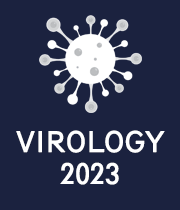Title : Evolutionary pressure from cross-reactive flavivirus serums generates mutations with altered serum sensitivity and fitness in mammalian cells
Abstract:
Flaviviruses, such as dengue virus (DENV) and Zika virus (ZIKV), cause recurrent febrile and hemorrhagic disease resulting in 400 million infections annually. These viruses are in a constant arms race with their host's immune system, which drives continuous evolution. Due to co-circulation, these viruses must respond to the specific immune pressures and pre-existing immunity to closely related co-circulating pathogens. However, the impact of pre-existing cross-reactive immunity as a driver of evolution is not well understood, leaving us underprepared to handle the emergence of cross-reactive immune escape variants.
Therefore, in this study, we investigated cross-reactive anti-DENV antibodies' role as drivers of evolution in ZIKV infection. We used an in vitro evolution system to passage ZIKV in mammalian cells with antibodies from patients previously infected with DENV (anti-DENV serum) or antibodies from DENV-naïve patients (control serum). Following five passages, next-generation sequencing was performed to identify any mutations that arose within the viral populations. Twenty-one mutations were detected with an allelic frequency greater than 5%. A subset of the non-synonymous mutations found in common antibody targets (M, E, and NS1) were inserted individually into a ZIKV infectious clone to assess their effects.
The mutation found in NS1 (NS1-T139A) showed an escape phenotype, while the mutation in E (E-V355I) had sensitized to anti-DENV serum. When assessed in Vero cells both with and without supplementation of anti-DENV serum, both viruses showed enhanced fitness. This fitness increase held in human lung epithelial cells (A549). When assessed in human monocytes (THP-1), E-V355I demonstrated a reduction in fitness, while there was no change in fitness for NS1-T139A. To fully characterize the impact of these mutations, the mutant virus will be assessed in Aedes aegypti mosquitos to understand how cross-reactive serum drives evolution more fully and its impact on sustained transmission.
What will audience learn from your presentation?
- This work demonstrates the need to study pre-existing cross-reactive immunity on evolution, not only pathology.
- The techniques used, such as competition assays, demonstrate a direct way to assess replicative fitness.
- This work highlights bacterial-free approaches to generating mutant viruses.


